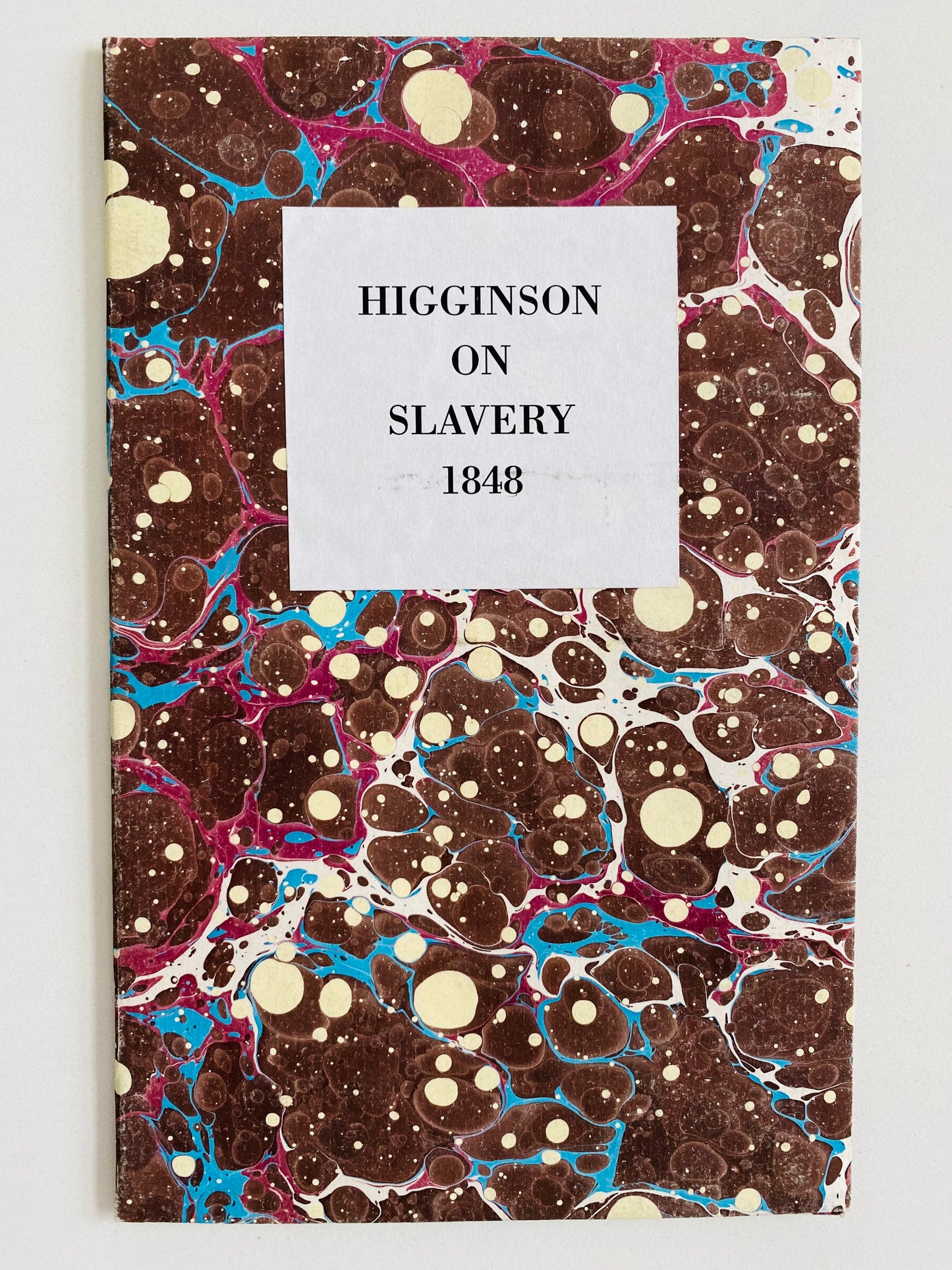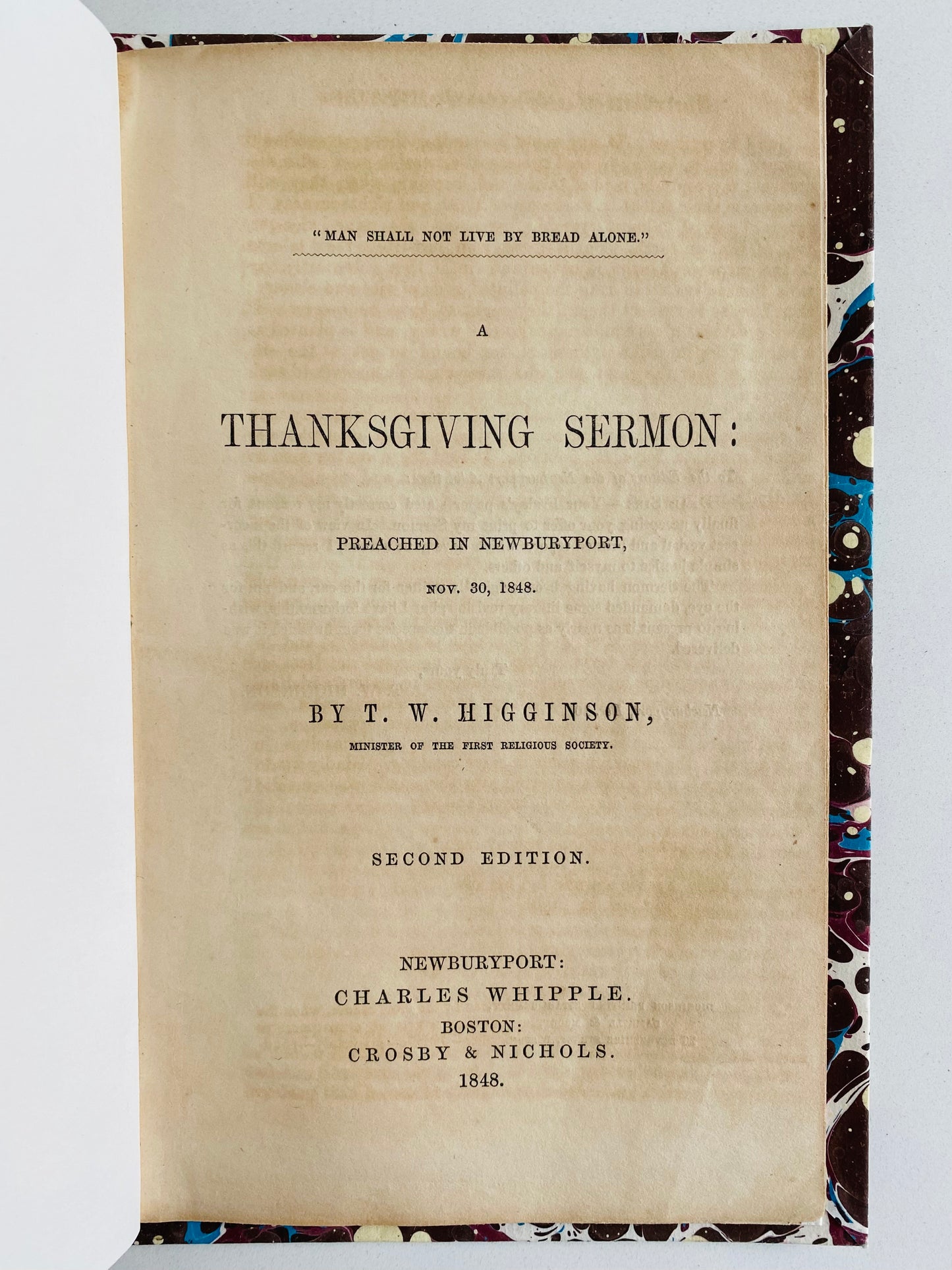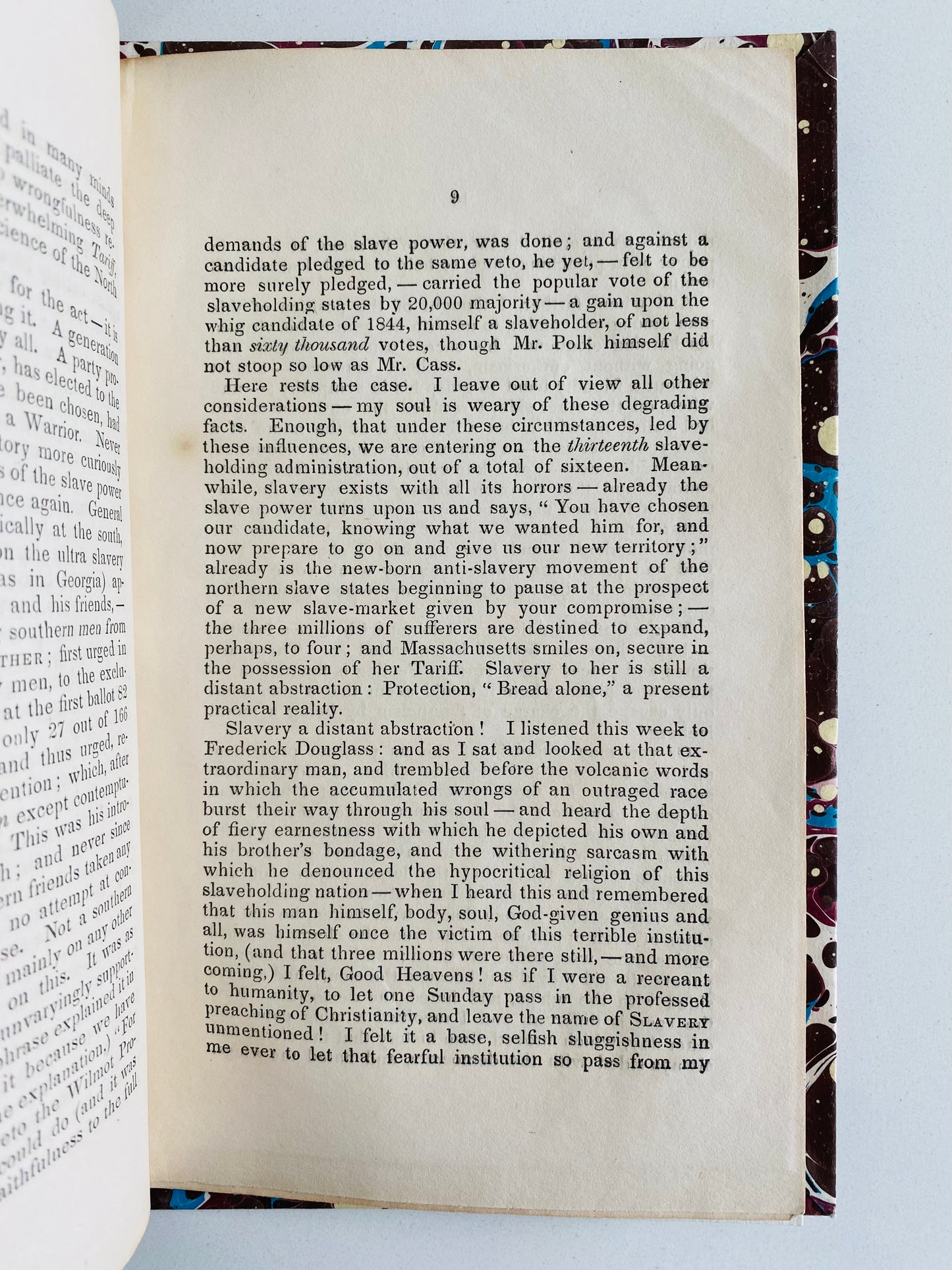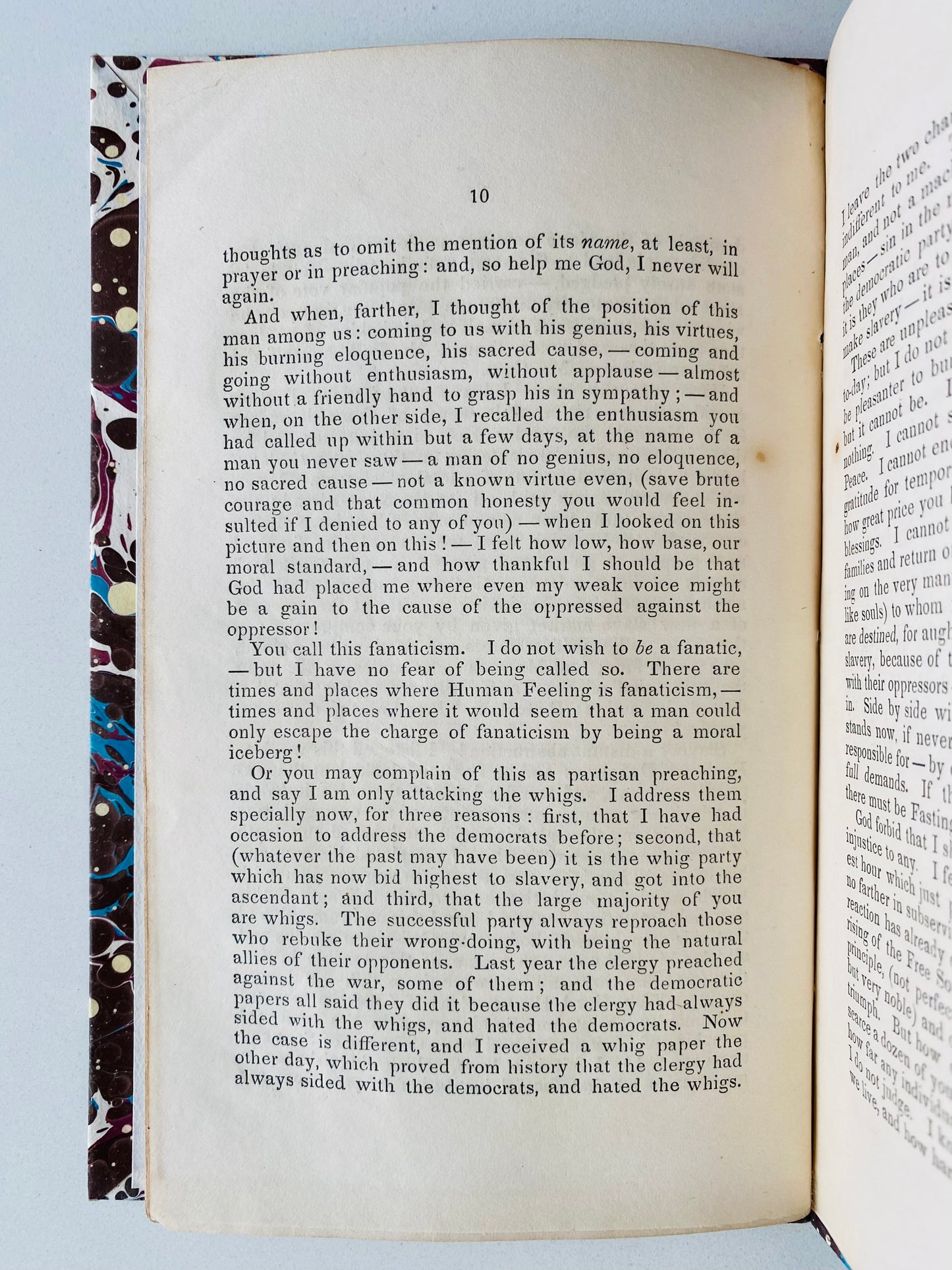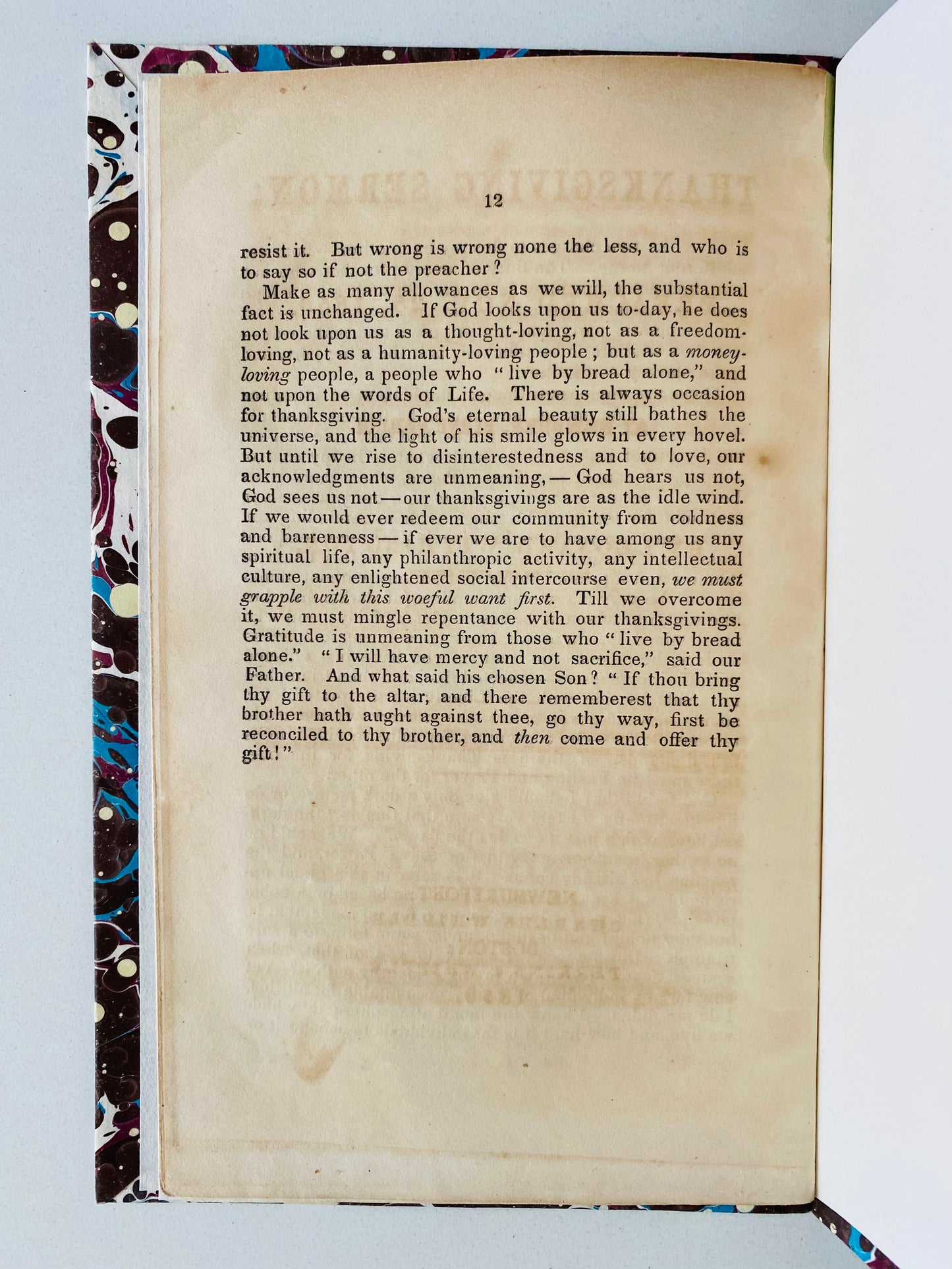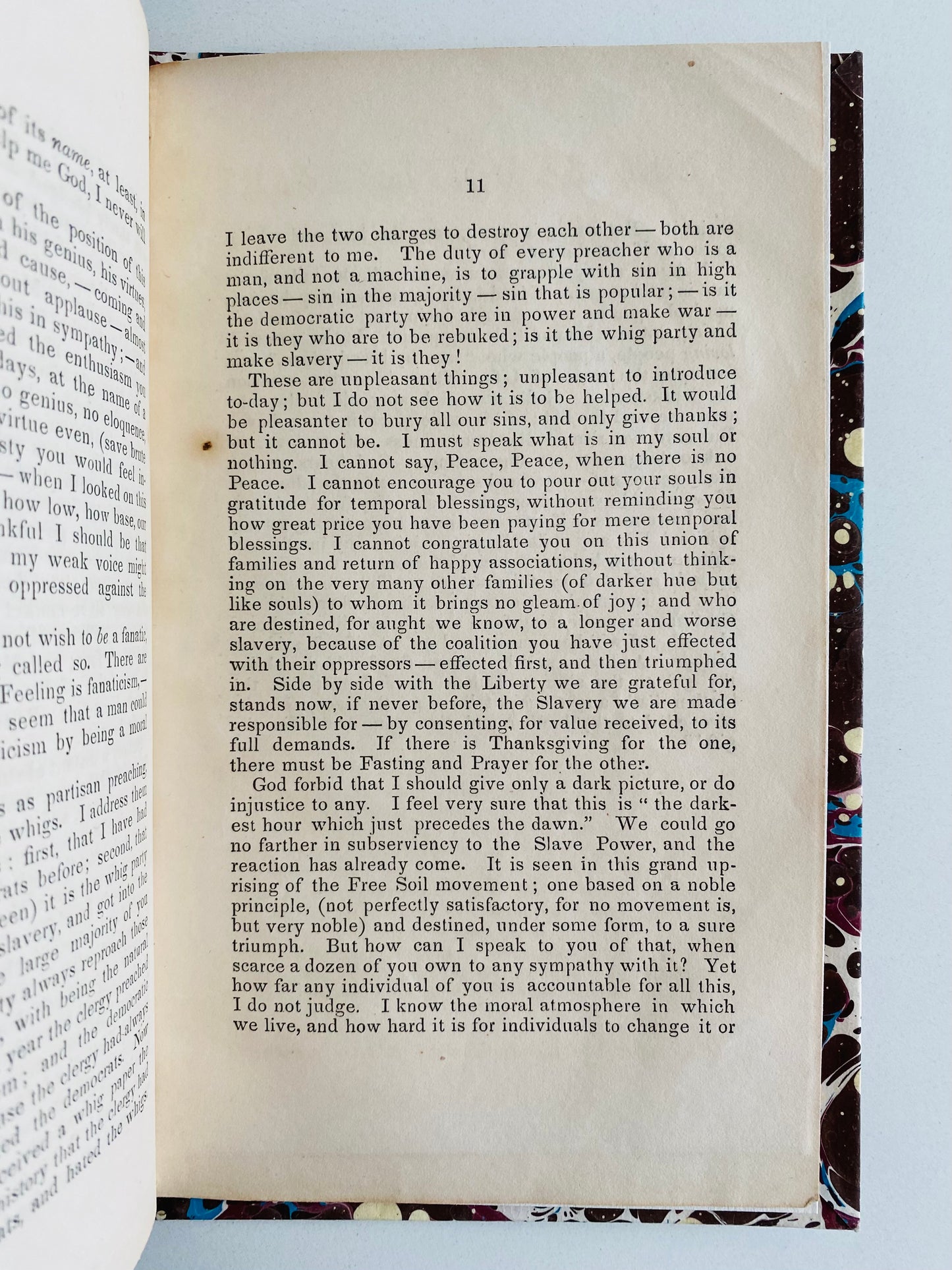Specs Fine Books
1848 THOMAS W HIGGINSON. A Sermon on Slavery by Colonel of the First Black Regiment in the Civil War.
1848 THOMAS W HIGGINSON. A Sermon on Slavery by Colonel of the First Black Regiment in the Civil War.
Couldn't load pickup availability
A very desirable early publication by the abolitionist minister turned soldier and Colonel of the very first Black Regiment mustered during the Civil War. This account has of course been famously re-told in the film, Glory.
Thomas Wentworth Higginson [1823-1911] was a radical abolitionist during the 1840's and 50's, a member of the Secret Six who helped fund and support John Brown and the Raid at Harper's Ferry. A graduate of Harvard, he became minister at Newburyport and used his pulpit and his church's finances to support the complete abolition of slavery. Higginson proved too radical for the congregation, and the year after the present sermon was preached, the church and the fiery agitator parted ways.
He then traveled, speaking and preaching for the anti-slavery cause in any venue that would have him. By 1850, he had his name in as a Free-Soil Candidate, urging the nation to obey God rather than the Government and to disobey the Fugitive Slave Act of 1850. By the time the Civil War erupted, Higginson was a veteran both politically and in the anti-slavery cause. So, when the government needed someone to lead the First South Carolina Volunteers, the first regiment of freedmen in the Union Army, Higginson was the natural choice.
He agreed, though reluctantly. Commenting on the demand that white officers be placed over black regiments, Higginson opined, "We, their officers, did not go there to teach lessons, but to receive them . . . there were more than a hundred men in the ranks who had voluntarily met more dangers in their escape from slavery than any of my young captains had incurred in all their lives."
The present, preached shortly before his dismissal, is a radical call to follow the voice of God as presented in Scripture at all costs . . . an innovative interpretation of his text, "Man shall not live by bread alone, but by every word that proceeds from the mouth of the Father." His specific and insistent instance of this call is of course, slavery.
Higginson, Thomas W. Man Shall Not Live by Bread Alone. A Thanksgiving Sermon: Preached in Newburyport, Nov. 30, 1848. Newburyport. Charles Whipple. 1848. Second Edition. 12pp.
Bound in probably late 20th century marbled wraps, textually very solid clean, and good as shown.
Share
